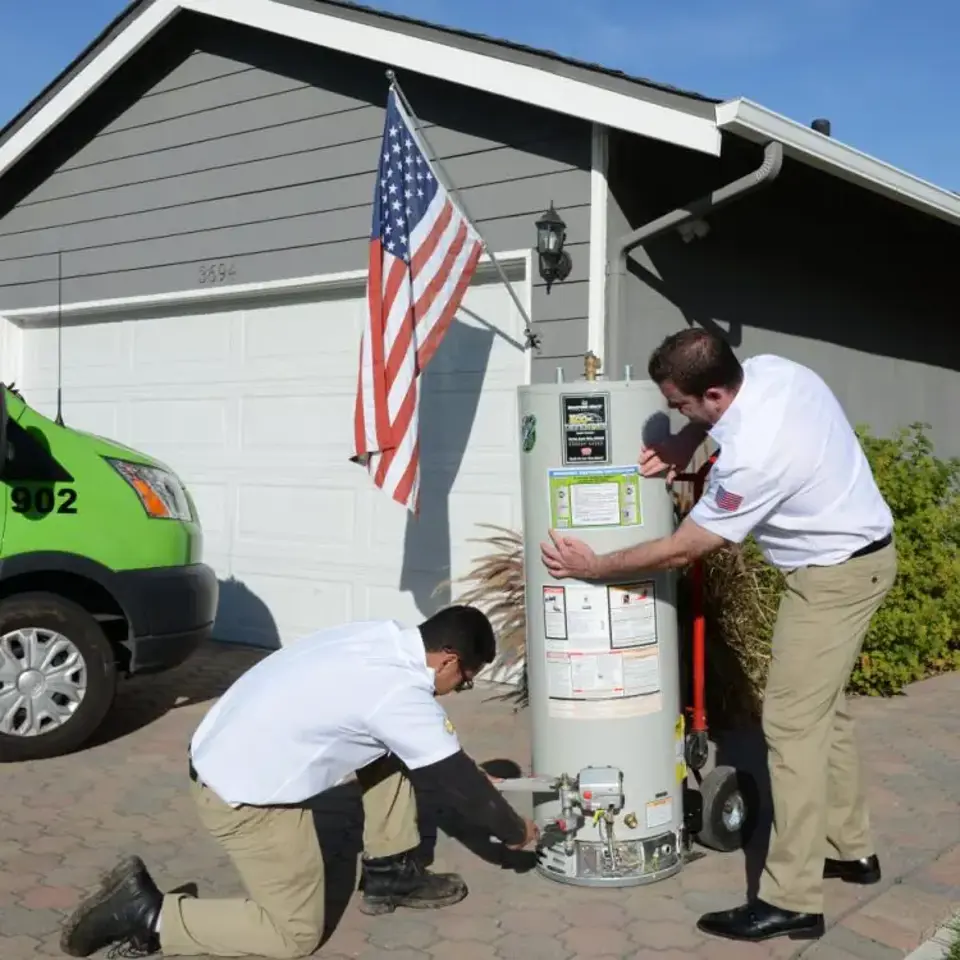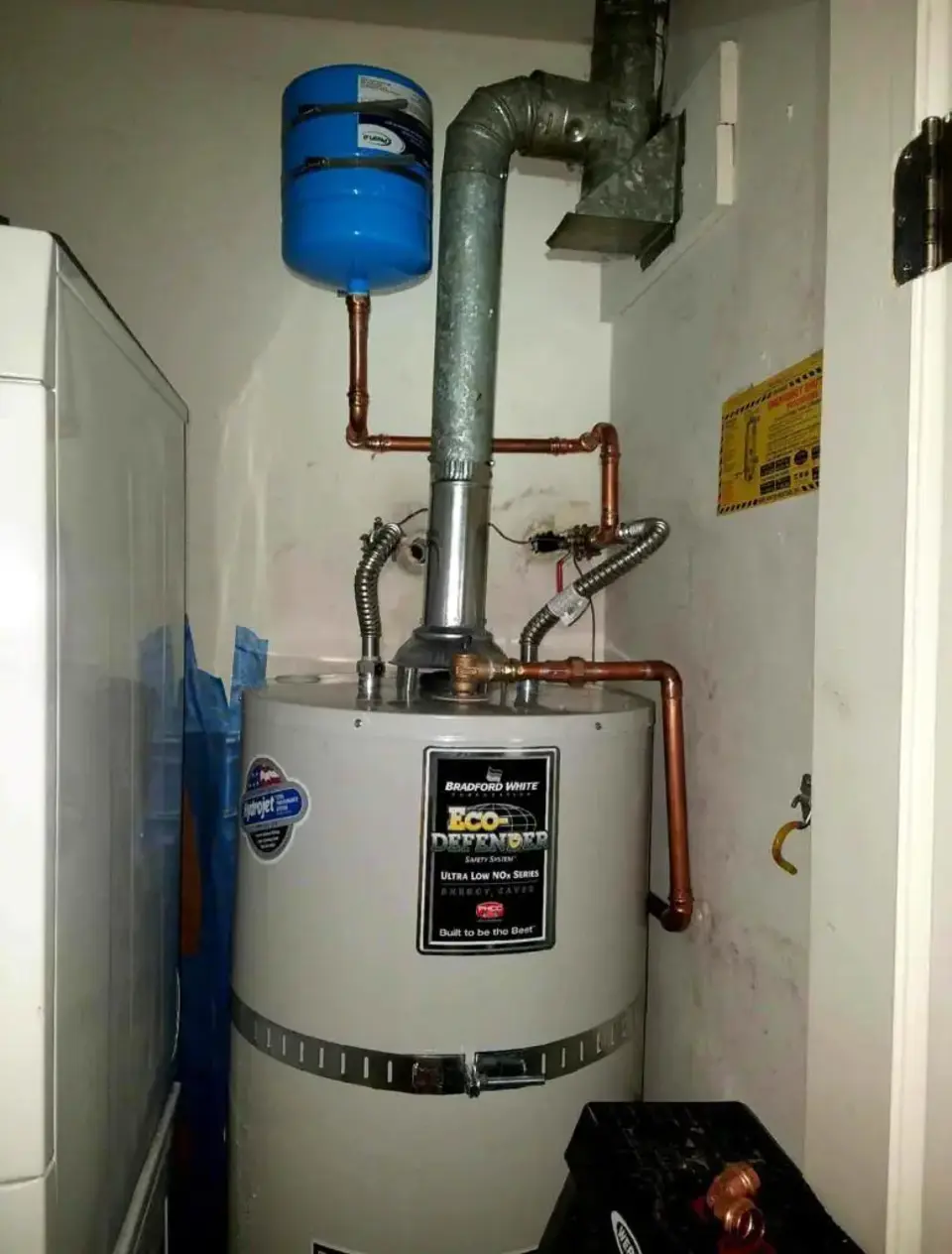Heavy rainfall in the San Jose, CA area can create unexpected challenges for homeowners, particularly when it comes to plumbing systems. So, what happens if your water heater gets wet? Water heaters are designed to contain water internally, but they’re not built to withstand external water exposure. When flooding or heavy rain causes water to reach your water heater, several serious issues can arise that require immediate attention. Let’s explore what happens when your water heater encounters unwanted moisture and examine other rain-related plumbing problems that San Jose homeowners commonly face.
Consequences of a Wet Water Heater
When a water heater gets wet from external sources, it can have significant consequences depending on the type of water heater, the extent of water exposure, and how quickly you address the problem. Here’s what could happen if your water heater gets wet:
- Immediate Safety Risks – Gas water heaters present the most serious concerns when exposed to water. If water extinguishes the pilot light, it could allow gas to accumulate. Even worse, if water enters electrical components that control the gas flow, it may cause malfunctions that could lead to gas leaks. The flue vent system can also be compromised when water enters from above or floods from below, resulting in carbon monoxide buildup inside your home.
- Electrical Hazards – Electric water heaters face different but equally serious problems when water exposure occurs. Water and electricity create dangerous combinations, resulting in electrical shorts, blown fuses, or even electrical fires. The heating elements, thermostats, and electrical connections are particularly vulnerable to water damage. If your electric water heater gets wet, never attempt to restore power until a professional thoroughly inspects and dries all electrical components.
- Corrosion and Long-Term Damage – Regardless of the fuel type, external water exposure accelerates corrosion on your water heater tank and components. Even if the unit appears to function normally after drying, hidden corrosion can lead to premature failure, leaks, and reduced efficiency. The insulation surrounding the tank can also absorb water, reducing the unit’s energy efficiency and creating conditions for mold growth.
Can Heavy Rain Affect Plumbing?
Heavy rain can indeed affect plumbing systems in multiple ways, and San Jose’s clay soil and aging infrastructure make local homes particularly susceptible to rain-related plumbing issues. Here’s how heavy rain affects plumbing:
- Saturated Soil Creates Pressure – When soil becomes saturated during heavy rainfall, it expands and shifts, creating pressure on underground pipes. This pressure can cause pipes to crack, separate at joints, or collapse entirely. Older homes in San Jose with clay or cast iron sewer lines are especially vulnerable to this type of damage.
- Sewer System Overload – Municipal sewer systems can become overwhelmed during heavy storms, causing backups that affect individual homes. When the main sewer lines reach capacity, wastewater may flow backward through your home’s drain system, creating backups in floor drains, toilets, and other low-lying fixtures.
- Foundation and Structural Issues – Heavy rain can cause foundation settling or shifting, which may damage plumbing lines that run through or under the foundation. Even minor foundation movement can stress rigid pipes and create leaks at connection points.
- Tree Root Intrusion – Wet conditions encourage tree roots to seek out water sources more aggressively. During and after heavy rains, roots may grow toward and into damaged sewer lines, creating blockages and further damaging your plumbing system.
Why Won’t My Toilets Flush After Heavy Rain?
There are a few potential reasons why your toilets may not flush properly after heavy rain, including tree root intrusion and foundation movement. As mentioned earlier, wet conditions cause tree roots to seek out water sources, including damaged sewer lines. When this happens, the roots can grow into the pipes and create blockages. This can make it difficult for waste and water to flow freely through your plumbing system, resulting in toilets that won’t flush or drain properly. In addition to tree root intrusion, heavy rain can also lead to foundation movement. This is particularly problematic for plumbing systems that run through or under the foundation of a home. Even minor shifting or settlement of the foundation can put stress on rigid pipes and cause them to crack or break, leading to leaks and potential water damage.
Why Are My Drains Not Draining After Heavy Rain?
Drain problems following heavy rainfall typically result from water entering the sewer system where it doesn’t belong, overwhelming the system’s capacity. Here’s why your drains may not be draining after heavy rain:
- External Water Infiltration – Cracked sewer pipes allow rainwater to enter the system, reducing the available capacity for household wastewater. Even small cracks can allow significant water infiltration during heavy storms. Over time, these cracks expand due to soil movement and root intrusion.
- Debris Accumulation – Storm runoff carries leaves, dirt, and other debris that can accumulate in sewer lines and create blockages. This is particularly common in areas where storm drains connect to sanitary sewer systems or where illegal connections exist.
- Hydrostatic Pressure – When groundwater levels rise significantly during heavy rain, hydrostatic pressure can force water up through floor drains and other low-lying drain openings. This pressure can also prevent normal drainage by creating a backup effect in the system.
- Municipal System Overload – During heavy storms, municipal sewer systems may reach capacity, creating backups that affect individual homes. The backup pressure prevents normal drainage and may cause sewage to enter homes through floor drains or other openings.
- Grease and Soap Buildup – Existing buildup of grease, soap, and other materials in drain lines can become more problematic during heavy rain events. The additional water volume may not be enough to flush away these materials, creating temporary blockages.
Protect Your Home From Rain-Related Plumbing Issues
Heavy rainfall doesn’t have to spell disaster for your San Jose home’s plumbing system. Understanding the risks and taking preventative measures can help you avoid costly repairs and dangerous situations. Regular maintenance of your plumbing system, including professional drain cleaning and sewer line inspections, can identify potential problems before they become emergencies. If you discover that your water heater got wet or experience other plumbing problems when it rains, don’t hesitate to contact us at Mike Counsil Plumbing and Rooter. We’ll help you ensure your plumbing system is functioning correctly and protect your home from water damage.









